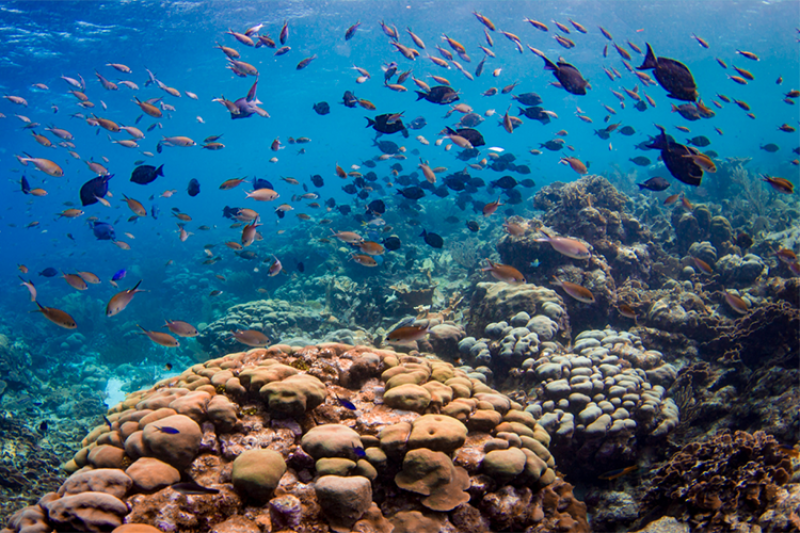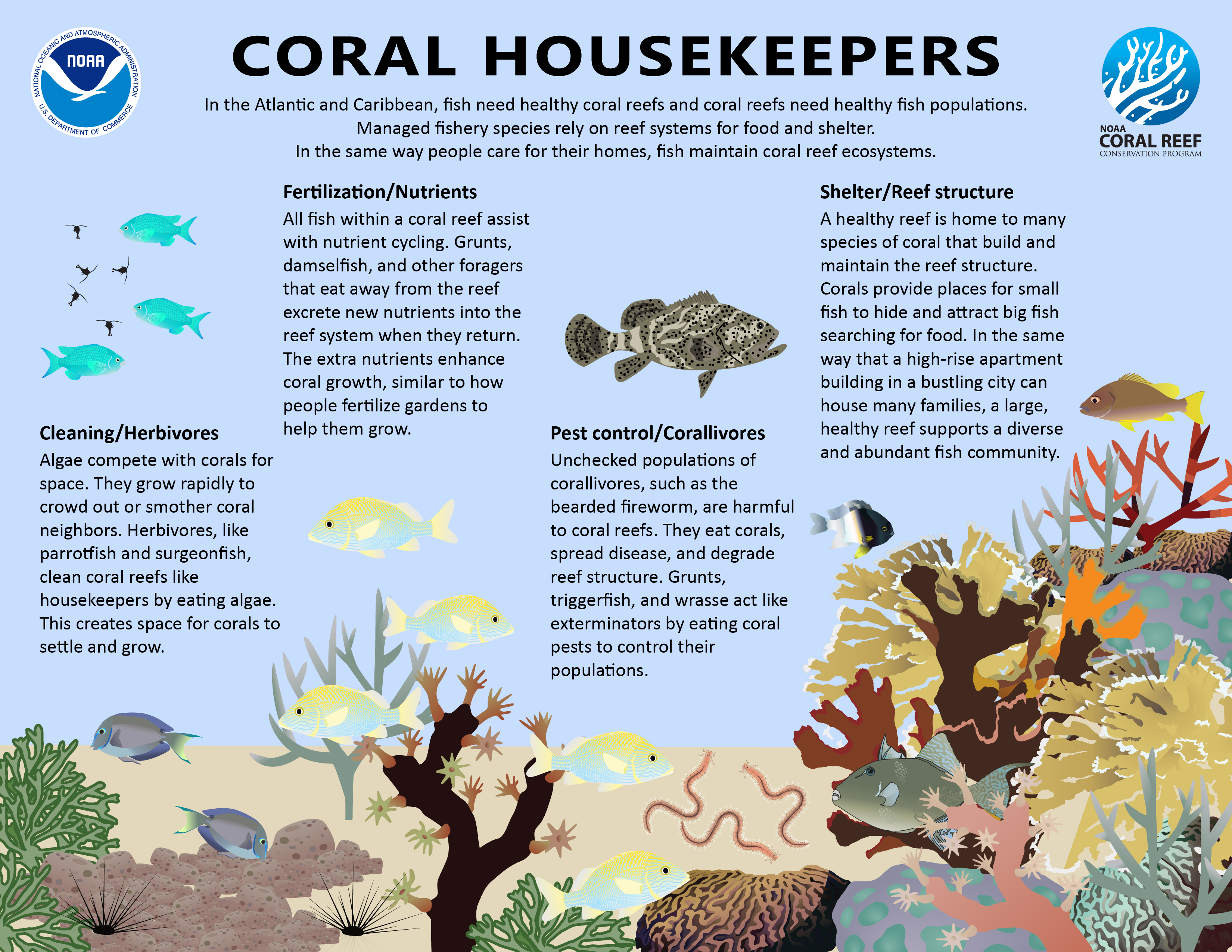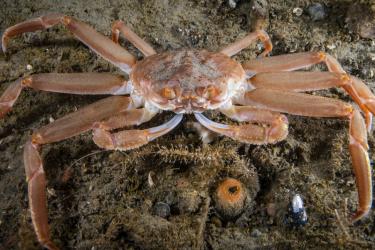It’s Corals Week! Did you know corals are animals related to jellyfish and anemones? Coral reefs are formed by individual animals, called polyps, that produce calcium carbonate which gives them their hard skeleton. You’ve probably interacted with coral reefs in some way, whether snorkeling or diving with them in warm tropical waters, or viewing them in movies.
During your interactions, have you noticed the large number of fish hanging out in or around the reef? That’s because some fish rely on coral reef systems for food, shelter, nurseries, and breeding grounds. The coral reef also benefits from having the fish around. Fish help to clean algae off the corals, provide nutrients for coral growth, and keep pests in check. While this partnership works great, it is at risk by a variety of threats.
Overfishing Threatens Reefs
So, what could interrupt this partnership? The primary threats to coral reefs are climate change, pollution, and overfishing. Overfishing occurs when the annual rate of fish caught is too high, leaving the population size too small to recover. Fish need healthy coral reefs and coral reefs need healthy fish populations. That’s why it’s so important to prevent overfishing, particularly those fish that feed on algae. When fish populations decline, algae can grow out of control, leading to the death of corals. This may lead to a less productive, algae-dominated ecosystem, with fewer fish and no living coral.
Healthy Coral Reefs are Vital for Fisheries
A healthy coral reef is important for our fisheries and economy. "Coral reefs are essential to fisheries. Approximately 25 percent of all marine life, including fish, depend on coral reefs at some point during their life cycles,” said Dr. Xaymara Serrano, Natural Resource Specialist for the Habitat Conservation Division in the Southeast. Approximately half of all federally managed fisheries depend on coral reefs. NOAA Fisheries estimates that the annual commercial and recreational value of U.S. fisheries from coral reefs is $100 million each.
What You Can You Do to Help Coral Reefs and Prevent Overfishing
You can help protect coral reefs and prevent overfishing, even if you live far away from the ocean. To help, choose sustainable seafood—that’s seafood that is managed to provide for today’s needs while allowing the species to reproduce and be available for future generations. By doing this, you’re helping to prevent overfishing, which allows for a successful partnership between the fish and coral reef. Research where your seafood comes from, whether it’s from a restaurant or grocery store. From wild-capture fisheries to farmed fish facilities, the United States is a recognized global leader in harvesting fish in ways that don’t harm the environment or other wildlife. Learn more about smart seafood choices with Fishwatch, the nation’s database on sustainable seafood.




